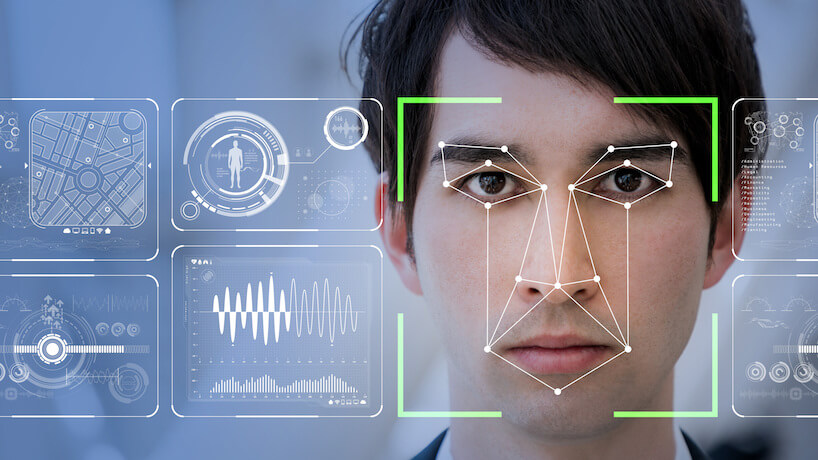Trendspotter
AI-powered robots, facial recognition, and wearable devices that communicate with each other — what used to be the stuff of science fiction is now a reality, with many consumer tech trends making their way into meetings and events.
At the recent Alibaba cloud computing conference, which took place in Hangzhou Oct. 11–14, facial recognition was used to register more than 40,000 delegates.
To sign up for the conference, delegates had to submit a passport-type photo or arrive with their government-issued ID. Upon arrival at the conference, facial-recognition technology verified their identity against the submitted ID photo and issued entry badges.
Meanwhile, at this year’s Marketo Marketing Nation Summit in San Francisco, April 29 – May 2, Amazon’s artificially intelligent (AI) chatbot Alexa was used as a concierge service to offer real-time assistance. Marketing software company Marketo teamed up with Amazon and event agency, Freeman, to customise Alexa’s conversational applications for its annual event, which attracts some 6,000 attendees. (Read more about this initiative here.)
“Intelligent voice assistants are the next big thing for events,” said David Haas, director, digital solutions at FreemanXP. Haas said conversational chatbots can enhance attendee engagement and recommended incorporating a “voice-experience” as part of gamification, or creating a chat-powered service desk that enables exhibitors and delegates to get real-time help. “Both voice and text-powered bots are going to provide greater convenience,” Haas said, citing the ability to have attendees ask a question and get an answer, reduce waiting time for service and in registration lines, and “introduce new types of interactions that don’t exist on site today.”
Augmented Reality
Like chatbots, the rapid rise of augmented-reality (AR) and mixed-reality (MR) technology is making waves in the events industry.
“AR and MR are overlapping and often misunderstood terms,” said Adam Charles, senior vice president, Asia Pacific, at FreemanXP, “but the impact on event marketing, and the world in general, is undeniable.”
Charles said several mainstream applications of AR and MR are already being used for events, such as retail-driven navigation like Aisle411, gamification that is modelled on Pokemon Go, and personalised content creation tools like Snapchat filters.
Looking ahead, Charles believes AR technology will enable event planners to create truly immersive, collaborative meeting environments.
“AR and MR will be increasingly democratised and agile, thanks mobile OS integration, web-based AR, and new, more socially acceptable hardware,” he said. “This will create incredible opportunities for highly personalised, contextual events, smart AR character interaction, and user-generated content.”
Wearables
The trend towards curating a personalised experience for attendees is also being spurred on by the proliferation of wearable devices like smart watches and bracelets.
Charles said wearables are already being used to measure emotional engagement at events.
“Wearable tech that captures biodata (beyond heart-rate monitors) can measure physiological reactions to live engagements,” he said, “and brands like Google and Pepsi are experimenting with this technology at events.”
Charles foresees this trend having greater implications on meeting design. “I also see functions being built for wearable tech that help locate matching profiled delegates at events,” he said. “Once you share your profile and what you are looking for, geolocation and wearable tech like smart watches will help match people with common interests.”
He also predicted an increase in the use of virtual-reality headsets and augmented-reality glasses for collaborative group interaction, like working around a 3D-virtual object in the same physical space. “While some of the hardware is not there yet,” Charles explained, “two to three years from now, I think mainstream AR glasses, from big players like Apple, will come out to enable this kind of interaction.”
Felix Rimbach, director of research and development at event-technology company, Globibo Singapore, believes an enhanced digital dialogue between the Internet of things (IoT) will also create new opportunities for hybrid events.
“Wearable technology will become a great accelerator of audience response and engagement,” Rimbach said. “Beyond onsite experience and integration, wearables will also facilitate a huge variety of hybrid-event structures.”
Robots
As robotics continues to advance at lightning speed, Rimbach predicts AI-enabled automation will change the way events are planned and executed.
“AI-powered robotics has already started to become a pillar to optimise venue operations,” he said. “Venue set-up and reconfiguration, F&B preparation and delivery, logistics to and from — as well as within — the venue can become more convenient, safer, and more efficient.”
The prospect of saving time and money with AI-enhanced automation is a major drawcard for many event planners and venue operators, but Rimbach questioned whether the industry is prepared for a future workplace that will see humans and robots working side-by-side.
“True AI will allow us to anticipate and reorganise execution based on big data,” he said, “but are we ready for AI-based execution and improvisation that may exceed our human intelligence?”
Echoing these concerns, Charles believes face-to-face events will always require a human touch. “Combining AI with human interaction to create a highly personalised experience in the offline world,” he said, “is much more likely in the short- to medium-term.”

